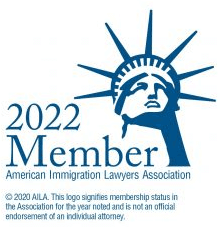
Office Location is Irving, Texas and Albuquerque, New Mexico
Call 214-609-2242
Recent Blog Posts
Why does immigration want my medical exam?
Medical exams by an authorized physician are a key part of any application for an immigrant visa or green card. This is done to evaluate the applicant’s health-related inadmissibility grounds. During the medical exam, the doctor will make sure you have all the required vaccines and perform a physical exam. He or she will also review your test results and complete the required forms for the government. While many common ailments are not an issue for obtaining a green card, having a highly communicable disease or being a drug addict may pose a problem, for instance:
- Tuberculosis (active)
- Syphilis (infectious stage)
- Chancroid
- Gonorrhea
- Granuloma Inguinale
- Lymphogranuloma Venereum
- Hansen’s Disease (Leprosy, infectious)
You may also be denied your benefit if you do not have the required vaccines or if you have a mental disorder that may cause you to be harmful to yourself or others. This is why it’s important to bring your immunization record with you to your medical appointment. If you don’t have of the required vaccines, a medical professional can administer them unless it’s not medically needed.
Is new asylum restriction good for public health, or 'discrimination'?
A proposed rule by the federal government would deny asylum to foreign nationals if they come from, or recently passed through, certain countries. Immigration officials say the rule would protect national security by slowing the spread of communicable diseases like COVID-19. But the American Medical Association is criticizing the proposal, calling it a form of discrimination against asylum seekers.
‘Legalize discrimination’
In a statement on the subject, the AMA quotes a letter that the group’s executive vice president and CEO, Dr. James L. Madara, wrote to federal officials. “The AMA is concerned that the proposed rule would legitimize discrimination against vulnerable asylum seekers,” Dr. Madara wrote. He also said the rule would base the determination of whether an asylum seeker is eligible on border agents who are “uninformed” about medical matters, and overall make it much more difficult for people seeking a stay of removal based on a credible fear of torture or persecution in their country of origin.
Public Charge Rule Allowed to be Implemented in Most States
On July 29, a federal court had ruled that the government could not enforce the public charge rule during the pandemic. This was a much welcomed announcement since many immigrant families are being severely affected by the COVID-19 pandemic. The new rules would effectively hinder their changes to obtain a legal immigration benefit for which they would otherwise quality. Under the rule, and while assessing the applicant’s eligibility, the government can take into account the individual’s past use of public benefits, age, medical issues, education, and work history, among other aspects, in evaluating the person’s likelihood of becoming a public charge.
On August 12, however, the Second U.S. Circuit Court of Appeals ruled that the prior ruling should only apply to states in the Second Circuit (New York, Vermont, and Connecticut). There are still many unanswered questions on this issue, including what will happen to applicants who did apply between the window of time after July 29 and before the ruling was narrowed. Meanwhile, the I-944 form, Declaration of Self Sufficiency, which is used to demonstrate eligibility under the public charge rules, is not available on USCIS’ website.
USCIS Fees are Going up on October 2, 2020!
It is final! USCIS announced today they are increasing many application fees starting on October 2, 2020. Some of these fees are increasing significantly, including the fee for Naturalization applications, which is going from $640 to $1,160. Asylum applicants, who historically did not have to pay any fees for their applications, will now have to pay $50 in order for their cases to be considered. See our chart below for some examples of these changes.
In addition, a new fee structure will significantly increase the cost for adjustment of status applicants. Under the current rules, most adjustment applicants pay a fee of $1,140 (with an added $85 biometric fee for most individuals). The fee is lower, at $750, for children under 14 year old applying with a parent. Along with their green card applications, applicants can currently request their work and travel permits, which are renewable as long as the application is pending, for no extra fee. Under the new rules going into effect on October 2, the new fee structure will change dramatically and instead require separate fees for each application, as well as increase the fee for children. The new fee will be $1,130 for all applicants, regardless of age, plus a $550 fee for work authorizations and $590 for travel permits.
What's an Affidavit of Support and Why do I need one?
Are you requesting a green card and you are being told you need an Affidavit of Support? You’re not alone! An Affidavit of Support is a requirement for most immigrants seeking a green card and it serves to show that they have adequate financial support and are not likely to become a public charge. The document is a binding contract between the sponsor and the government to financially support the immigrant in the case that he or she is unable to support himself or herself.
Now, don’t panic! Most affidavits of support are never enforced. An affidavit of support could be enforced, however, if the immigrant requests and receives certain means-tested benefits, such as TANF (cash assistance), Medicaid, or SSI (Supplemental Security Income). Even if the immigrant meets the income requirements for these benefits, please note most would not be eligible for at least 5 years after they get their green card. Please see page 11 of this report for more information on the 5-year bar).
My green card is expiring! What do I do?
Given the current delays by U.S. Citizenship and Immigration Services, many green card renewal applicants have seen their estimated processing timelines come and go and they have yet to receive their new green cards. A green card is essential to show that the individual is a legal permanent resident and is thus legally allowed to work in the United States, return to the country after a trip abroad, and qualify for key benefits such as unemployment. At Lawit Law, we have received a number of calls from concerned immigrants who had timely filed their applications to renew their document or requested their naturalization. Applicants may be experiencing significant delays for a number of reasons, including the closing of Application Support Centers (where they would take your picture and fingerprints), the disruption caused by the end of the contracts with at least two companies that produce the physical green cards and work permits, the seemingly impending furloughs, and, of course, COVID-19.
Applying for DACA and you think you don't have any evidence? Think again!
DACA is a wonderful benefit! At Lawit Law, we have seen how this form of temporary immigration relief has changed the lives of many of our clients. The issue many faced, however, is that they struggled to find the much needed evidence to apply. So we are sharing not only the list of requirements for DACA, but also the ways in which we have seen clients show their eligibility.
To be eligible for DACA, you must:
- Have come to the United States before your 16th birthday
- Have lived continuously in the U.S. since June 15, 2007 and until the time you apply for DACA
- Have been present in the U.S. on June 15, 2012
- Not have a lawful immigration status on June 15, 2012
- Have been born on or after June 15, 1981
- Be at least 15 years old at the time you apply for DACA (but you can apply at any age if you are in removal proceedings)
- Have graduated or obtained a certificate of completion from high school, have obtained a general education development (GED) certificate, be an honorably discharged veteran of the Coast Guard or U.S. armed forces, or “be in school” on the date you submit your DACA application.
How can I get a Social Security Number after migrating to the United States?
The Social Security Administration is in charge of assigning Social Security Numbers to individuals. This document is crucial and its granted for purposes of identification and retirement benefits. The Internal Revenue Service (IRS), hospitas, businesses, banks, schools, and other institutions use this number for identification purposes. An individual’s Social Security Number is also linked to the person’s credit history and payment of taxes.
Only United States citizens and those immigrants allowed to reside in the United States (such as those with a green card or work permit) are allowed to have a Social Security Number. In order to request a Social Security Number, individuals must do the following:
- Complete an application with the Social Security Administration
- Show evidence of their immigration status
- Show evidence of their identity
If you are lawfully residing in the United States and have yet to receive your Social Security Number, you can approach your nearest SSA office .. If you have ever been assigned a lawful Social Security Number in the past, this number should not change.
Can I clean my criminal record for immigration purposes?
Several criminal acts and convictions could put an immigrant in danger of being deportable. Many chose to go through a process called “expungement,” which would allow them to clean their record, essentially deleting their history of criminal convictions. If a court agrees to seal or expunge a person’s criminal record, they are considered to never have committed a crime at all. However, this is a complicated process and many times does not have the desired effect for immigration purposes.
Even if an individual’s criminal records are expunged or sealed, prior criminal convictions could still cause issues on an immigration case. Expungements and sealment of records do not prevent the government from being aware of the record for immigration purposes. The record will always exist. However, you may still want to consider going through this process for other purposes, such as finding employment.
Each case is unique and should be closely evaluated, but individuals may request to have their arrests, court supervisions, and some probation sentences deleted from their record. Each state has its own rules, but generally the petition should be filed with the court having jurisdiction and after a certain number of years have passed since the conviction.
With many schools transitioning to online classes, some F1 and M1 students may be forced to leave the US
This is another effect of the COVID-19 pandemic. Many schools have found it necessary to prevent the spread of the virus. At least for the upcoming fall semester, many colleges are saying goodbye to in-person classes and shifting to virtual classrooms. This seems like a convenient way to keep students on track for graduation and avoid the temporary shut down of classes, but the new setting does not seem to be favored by Immigration and Customs Enforcement.
On July 6, 2020, ICE announced that those students holding F1 and M1 visas and who are scheduled to only take online classes would not be able to keep their status. These students are welcomed to take online classes for the upcoming fall 2020 semester, but they will not be granted a visa to the United States nor allowed into the country for these purposes. In addition, according to the new directive, those F1 and M1 students presently in the United States should leave if their classes are going to be fully online.


















